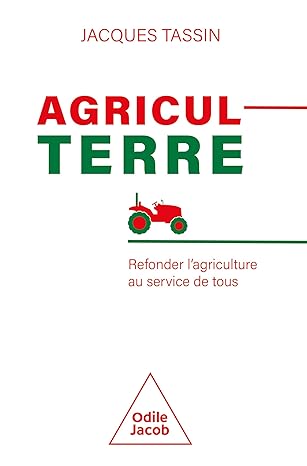In the definition formulated by César-Pierre Richelet, author in 1680 of the first French dictionary, agriculture means “the art of cultivating the land”. But the word agriculture is a kind of linguistic laziness and “suffers from the use of the third person singular” as the author points out because agriculture is a composite emanation of social complexities.
Meat drying techniques, seed conservation, and the rise of storage contributed to the sedentarization of hunter-gatherers. This sedentarization freed the hands and minds, favoring other forms of production of goods, especially with the birth of crafts. Agriculture has gone from a relationship with the animist world, part of the continuity of life, to a world in which nature and humans have separated. Agriculture and nature become shaped by man. This is the first major transition, the Neolithic mutation.
The second transition will appear with the eighteenth century and will take a decisive turn with the discovery of the great oil fields in Texas. The industrial revolution and extractive productivism provided agriculture with new, extremely powerful means of production, agrochemicals, and motorization.
This new era, the Anthropocene, with agricultural intensification, indebtedness, soil de-fertilization, atmospheric pollution, and pesticide pollution has led to a collapse of biodiversity. Certainly, this collapse is multifactorial and its constituents are very difficult to isolate from each other. Nevertheless, it is clear that a reduction in pesticide consumption is possible without affecting yield. This reduction in pesticides can only be done with an intensification of the agricultural workforce and plant association rather than monoculture.
We must revive symbiosis, this is the author’s proposal: agroecology.
Since the recent discovery of the holobiont, we know that the massive use of inputs weakens the microbiota of the earth. This will not only involve new agricultural practices but also a change in our eating habits, first and foremost, our meat consumption. It will also be necessary to restore coherence and networking between territories, rebalance decision-making powers towards more local scales, and finally, reinstate the sharing of water resources.
The indispensable restoration of the agricultural community will pass through its politicization. Ecology, initially based on this restoration, has gone astray. It has become a forum for discourse overlooking realities, highly publicized, which contributes to the radicalization of positions. Agroecology must not follow the same path of protest and demand. It must be accompanied by the public authorities. It must convince of this humanistic and ecological transformation, to influence the course of the world but without shaking it.
Jacques Tassin is an agronomist and ecologist at CIRAD (Center for International Cooperation in Agronomic Research for Development) and a corresponding member of the French Academy of Agriculture.
Ph Alezard


